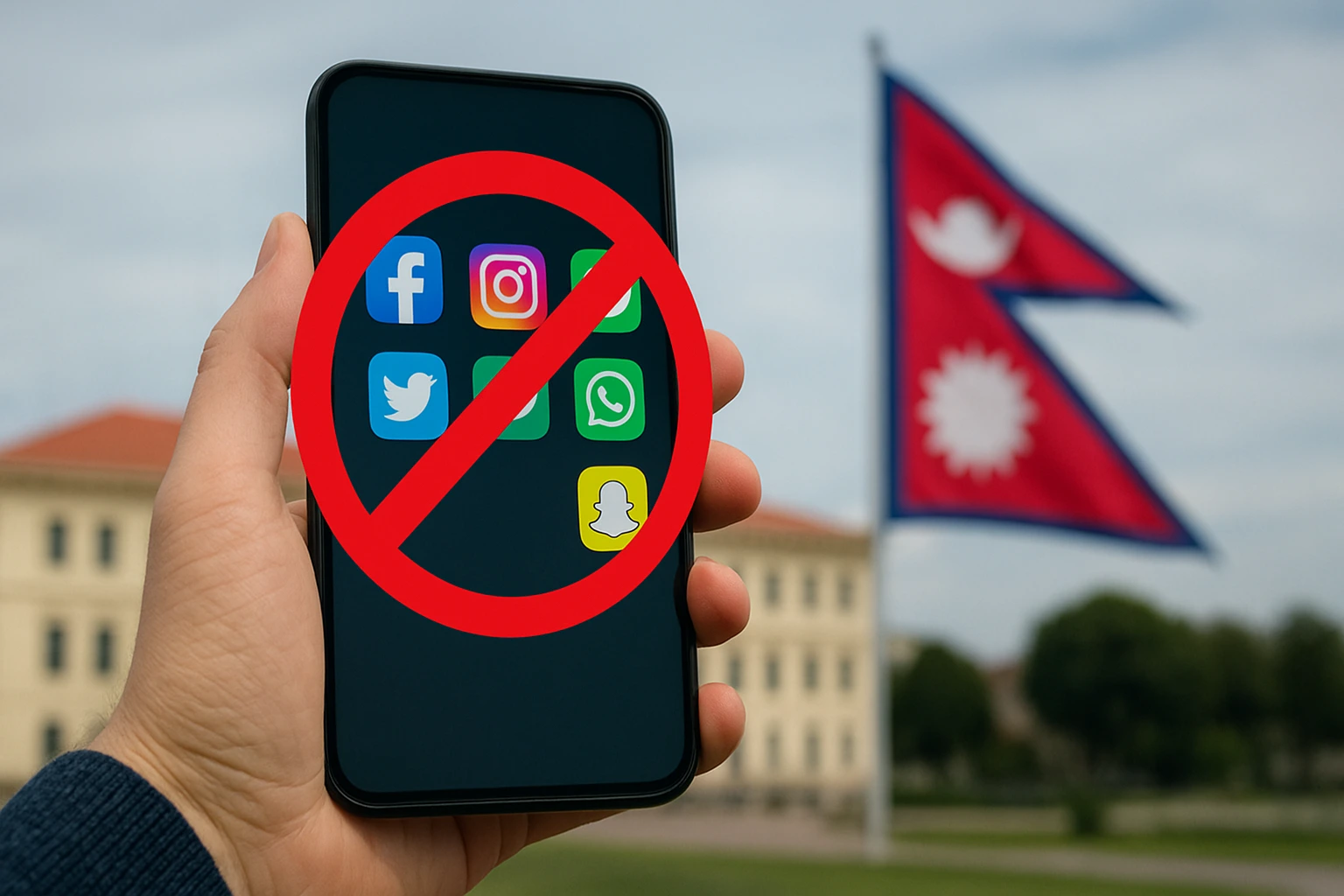On September 4, 2025, Nepal’s government took a significant step by banning 26 major social media platforms, including Facebook, Instagram, YouTube, WhatsApp, and X formerly Twitter.
This move has garnered international attention and raised questions about digital governance, freedom of expression, and the future of online communication in Nepal.
What You Will Learn in This Article
- The Reason Behind Nepal’s Social Media Ban, Understand the legal and regulatory framework that led to the ban.
- Explore how this decision affects daily life, communication, and commerce in Nepal.
- Discuss potential solutions and the steps required to resolve the situation.
Why Did Nepal Ban Social Media Platforms?
The primary reason for the ban was the failure of 26 major social media platforms to comply with Nepal’s regulatory requirements.
In August 2025, Nepal’s Supreme Court issued a directive mandating that all online platforms both domestic and foreign register with the Ministry of Communications and Information Technology before operating in the country.
This directive aimed to ensure accountability and facilitate the monitoring of content to prevent the spread of misinformation and hate speech.
Platforms were given a seven day deadline to register, which expired on September 3, 2025. The government had previously issued multiple notices to these companies, urging them to comply with the registration process.
However, upon the expiration of the deadline, the Nepal Telecommunications Authority (NTA) was instructed to block access to these platforms.
Interestingly, platforms like TikTok, Viber, and Nimbuzz were not affected by the ban. These platforms had already registered with the government, thereby complying with the new regulations.
The Impact on Nepalese Society
Social media platforms have become integral to daily communication in Nepal. The sudden unavailability of services like WhatsApp and Facebook has disrupted personal and professional interactions.
Individuals and businesses that rely on these platforms for communication are facing significant challenges. Many small businesses and freelancers in Nepal utilize platforms like Instagram and LinkedIn for marketing and networking.
The ban has hindered their ability to reach customers and clients, potentially leading to financial losses. Students and educators who depend on YouTube for educational content are now deprived of a valuable learning resource.
This disruption could affect the quality of education and access to information. The abrupt nature of the ban has led to public protests and widespread criticism.
Many citizens view the government’s action as an infringement on their freedom of expression and a step back in terms of digital rights.
Legal and Regulatory Landscape
The legal foundation for this ban lies in the Directive on Regulating the Use of Social Media, 2080, which was enacted to oversee the operations of online platforms in Nepal.
The Supreme Court’s directive emphasized the need for these platforms to register with the MoCIT, appoint local representatives, and establish mechanisms for content monitoring and grievance redressal.
The government’s stance is that these measures are necessary to protect national security, public order, and the cultural integrity of Nepalese society.
However, critics argue that the regulations could be used as tools for censorship, potentially stifling free speech and access to information.
For the ban to be lifted, the government and the affected social media companies must engage in constructive dialogue.
Platforms need to understand and comply with Nepal’s regulatory requirements, while the government should ensure that these regulations are fair and transparent.
The establishment of local offices by these platforms would facilitate better communication and quicker response times to issues raised by users and the government.
Platforms should implement robust systems to address user complaints and concerns. This would demonstrate their commitment to responsible operation within Nepal.
Both the government and the platforms must work together to monitor content effectively and ensure compliance with local laws and regulations.
A Call for Balanced Regulation
While the government’s intent to regulate social media platforms is understandable, it is crucial that such measures do not infringe upon fundamental rights like freedom of expression and access to information.
A balanced approach that ensures accountability without stifling digital freedoms is essential for the healthy growth of Nepal’s digital landscape.
Call to Action: We encourage readers to share their thoughts on this issue. Do you believe the government’s actions were justified? How do you think this ban will affect Nepal’s digital future? Share your opinions in the comments below.
